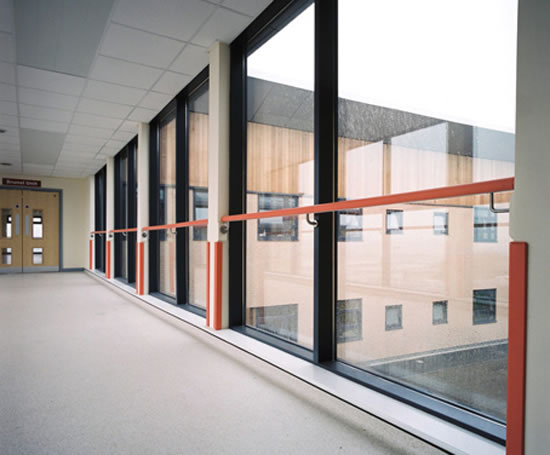Scaling your business is one of the most exciting things that will ever do in your lifetime, whether you are looking to create an established SME or a multi-national corporation.
Achieving this goal can be challenging, however, particularly from a financial perspective. When attempting to scale your premises and move to a traditional, commercial location, for example, you may be required to invest in a long-term lease agreement that offers your venture little flexibility going forward. Not only this, but this type of rigid monthly cost can also eat into your cash flow during times when business volumes decline, and this issue is one that contributes heavily to the incredibly high rate of failure among new ventures across the globe.

In this article, we will look at the potential solution that exists in the form of impermanent and steel structures, which can be used flexibly and enable your business to grow in a scaleable and organic manner.
From Pop-up Stores to Steel Structures: The Benefits of Flexible Premises
Since the Great Recession, we have seen the emergence of flexible financial products for both households and businesses alike. This reflects how the economy has reacted to the banking collapse, and the impact that this had on the housing and business markets throughout the world.
In the business sector, there has been a far greater emphasis based on impermanence and flexibility, as firms look to minimise their operational costs without compromising on productivity. Advancements in remote technology have made it possible for firms to reduce that they spend on salaries, for example, by maintaining a core group of permanent staff alongside a skilled and temporary workforce that can be hired according to the needs of each individual project.
The same outlook has been applied to commercial premises, with inflexible commercial leases no longer the only option for businesses that want to scale. In fact, there are now variable options for businesses depending on the nature and precise requirements of their venture, each of which allows firms to scale gradually and in line with the performance of their firm. Click here to learn more.
The first of these are steel structures, which are sold by brands such as Adaptive Steel Buildings and are ideal for entrepreneurs who are looking to operate manual businesses. These structures can be sourced at a competitive price and built on land where the entrepreneur owns the leasehold. While they have particular merit when used as workshops, auto repair outlets and small-scale manufacturing facilities. Boasting a simple and flexible bolt-together frame, these structures require no maintenance and allow owners to test and scale their businesses burgeoning growth.
For retail and office-based outlets, the emergence of pop-up stores and temporary buildings have served a similar purpose. The former can be sourced along high streets and prominent retail spaces throughout the Western world, while they can be leased on the terms of a short-term, rolling contract. There is no commitment to a long-term lease, so brands can look to extend their retail presence and scale for as long as there is demand for their products. These structures also offer them access to high levels of footfall, which is crucial to building awareness and loyalty.
In contrast, temporary commercial structures are ideal for office-based businesses or technology brands. These simple but efficient buildings can be constructed in thriving business hubs and retail parks, offering a temporary and Eco-friendly workplace that allows firms to transition from home-based ventures to nationally-recognised brands. Once again, there is no need to commit to a long-term lease, as you can utilise and pay for the structure for as long as required.
The Key Benefits of Pop-up and Steel Structures
While there are physical differences between steel and pop-up structures, they offer similar cost and operational advantages to commercial clients.
Most importantly, they minimise risk for emerging businesses that are looking to scale, by reducing the amount that they have to spend on securing commercial premises. They also negate the issue of long-term commitment, enabling entrepreneurs to scale their business flexibly and in line with organic growth. Similarly, it works as part of an agile and adaptable business model, and one that is designed to cope with the increasingly changeable economic climate.
This is definitely something for your start-up to consider as it begins to scale, as you strive to create sustainable growth and create a business that can stand the test of time.







